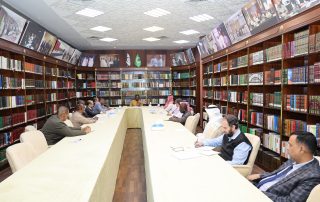
In the Name of Allāh,
the Entirely Merciful, the Especially Merciful
Praise is due to Allāh, Lord of the worlds, may the blessings and peace be upon our master Muḥammad, the last of prophets, on his family, and all his companions.
Resolution No. 13 (1/3)
Answering the Questions of the Islamic Development Bank
The Council of the International Islamic Fiqh Academy of the Organization of the Islamic Conference, holding its 3rd session in Amman, Hashemite Kingdom of Jordan, on 8–13 Ṣafar 1407h (11–16 October 1986),
Having conducted extensive study and in-depth discussions on the ques- tions submitted by the Islamic Development Bank (IDB) to the Academy,
Resolves
-
Service Fee for IDB Loans
- It is permissible to charge a fee for loan-related The said fee should be within the limit of the actual expenses.
- Any fee in addition to the actual service-related expenses is prohibited because it is considered as ribā (usury).
- Lease Transactions
First: The IDB’s promise to lease the equipment to the client, after it has owned it, is acceptable according to Shariah.
Second: The appointment, by the IDB, of one of its clients as its agent, for the purchase, in the name of the Bank, of equipment and tools, of given specifications and price, with the intention for the Bank to lease the purchased items to this client after the latter has received them, is a Shariah-acceptable agency appointment. However, it is preferable that the purchasing agent be different from the beneficiary client if this con- dition can be easily met.
Third: The lease agreement should be implemented after the actual ac- quisition and possession of the equipment and should be in a separate contract than the agency contract or the promise.
Fourth: The promise to give away the equipment at the end of the lease period is permissible if such a promise is made under a separate contract.
Fifth: The risk of loss and manufacturing defects rests with the Bank, in its capacity as the equipment owner, unless it is due to deliberate tamper- ing or negligence by the lessee, in which case, the liability will rest with him.
Sixth: The insurance premium, contracted as far as possible through Islamic Insurance Companies, is to be borne by the Bank.
- Future Sales on Installments
First: The IDB’s promise to sell the equipment to the client, after it has owned it, is acceptable according to Shariah.
Second: The appointment by the IDB of one of its clients as its agent for the purchase, in the name of the Bank, of equipment and tools, of given specifications and price, with the intention for the Bank to sell the purchased items to this client after the latter has received them, is an acceptable appointment according to Shariah. However, it is preferable that the purchasing agent be different from the beneficiary client if this condition can be easily met.
Third: The sale agreement must be concluded after the actual acquisition and reception of the equipment and must be entered into by a separate contract.
- Foreign Trade Financing
The principles applicable to these transactions are the same as those ap- plicable to deferred sales in installments.
- Using Interests generated by Deposits that IDB is required to deposit at Foreign Banks
It is prohibited on the Bank to use the interests earned on its deposits in foreign banks to protect the actual value of its assets from the effects of currency fluctuation. Therefore, the said interest amount should be spent on general welfare, such as training, research, helping those in need, and providing financial and technical assistance to Member states. Furthermore, it may be given to academic establishments, institutes, schools, and anything associated with disseminating Islamic knowledge.
Indeed, Allāh is All-Knowing.
Read Also
Lastest








